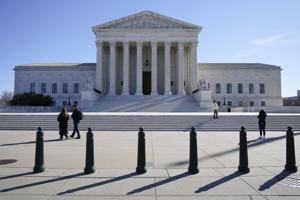SCOTUS declines to hear First Amendment, campaign finance case against Santa Fe

(The Center Square) – The U.S. Supreme Court has decided not to hear a legal challenge to Santa Fe’s campaign disclosure requirements.
The case stems from a 2017 election when Santa Feans were set to vote on a soda tax proposition. The Rio Grande Foundation, a free-market think tank based in Albuquerque, launched a campaign to defeat the measure, which included mailers, a $7,500 campaign video, Facebook advertisements, and a website telling voters to reject the proposition.
The city requires campaign reports to be filed disclosing contributions and expenditures related to ballot measures, but the think tank declined to file a report.
The Rio Grande Foundation later filed a lawsuit against the city and its Ethics and Campaign Review Board (ECRB), challenging the disclosure ordinance under the First and 14th Amendments.
The U.S. District Court for the District of New Mexico upheld the city’s transparency law in February 2020. The 10th Circuit Court of Appeals also dismissed an appeal from Rio Grande Foundation in 2021 for lack of standing, leading to the group petitioning the U.S. Supreme Court.
“The Court’s decision was unfortunate,” Rio Grande Foundation President Paul Gessing said in a statement. “But it is hard to get to the Supreme Court and they have been particularly reluctant to make sweeping decisions on free speech and campaign finance issues in recent years.”
Gessing said the case was denied by the 10th Circuit Court of Appeals on lack of standing, “not necessarily the merits of the case itself.”
The Campaign Legal Center (CLC), which represented the city of Santa Fe in defending its political disclosure law, called the court’s move “a win for political transparency” in a statement.
“The Supreme Court has long recognized that disclosure is a constitutional means of protecting voters’ right to know about the sources of election-related spending, and the Court’s denial of certiorari leaves Santa Fe’s important transparency provision in place,” the organization said.
Gessing added that the Rio Grande Foundation “will more carefully consider restrictive local campaign finance rules if/when we choose to engage in efforts to educate voters on local ballot measures like Santa Fe’s soda and sugary drinks tax from which this case originated.”
Disclaimer: This content is distributed by The Center Square


